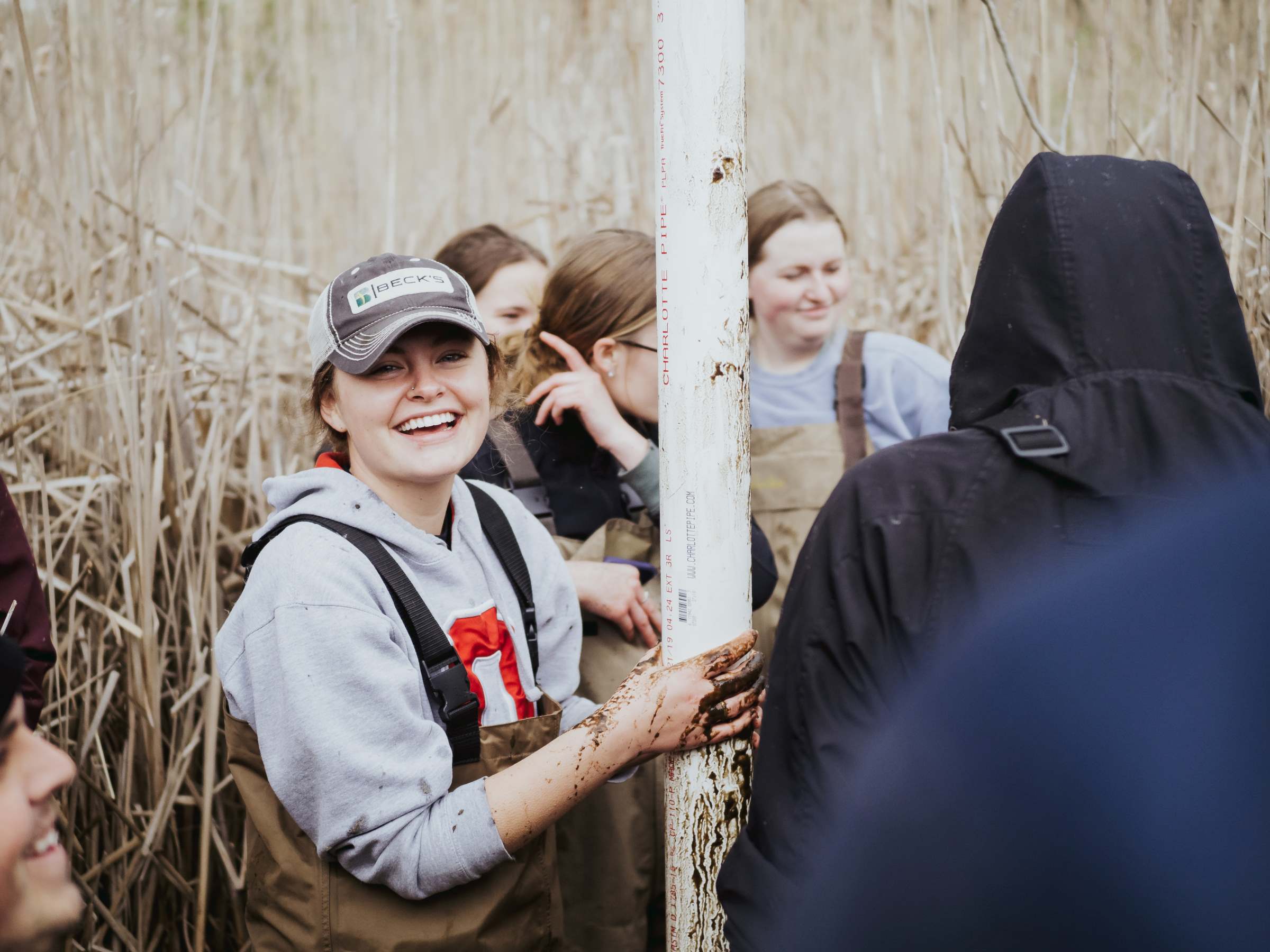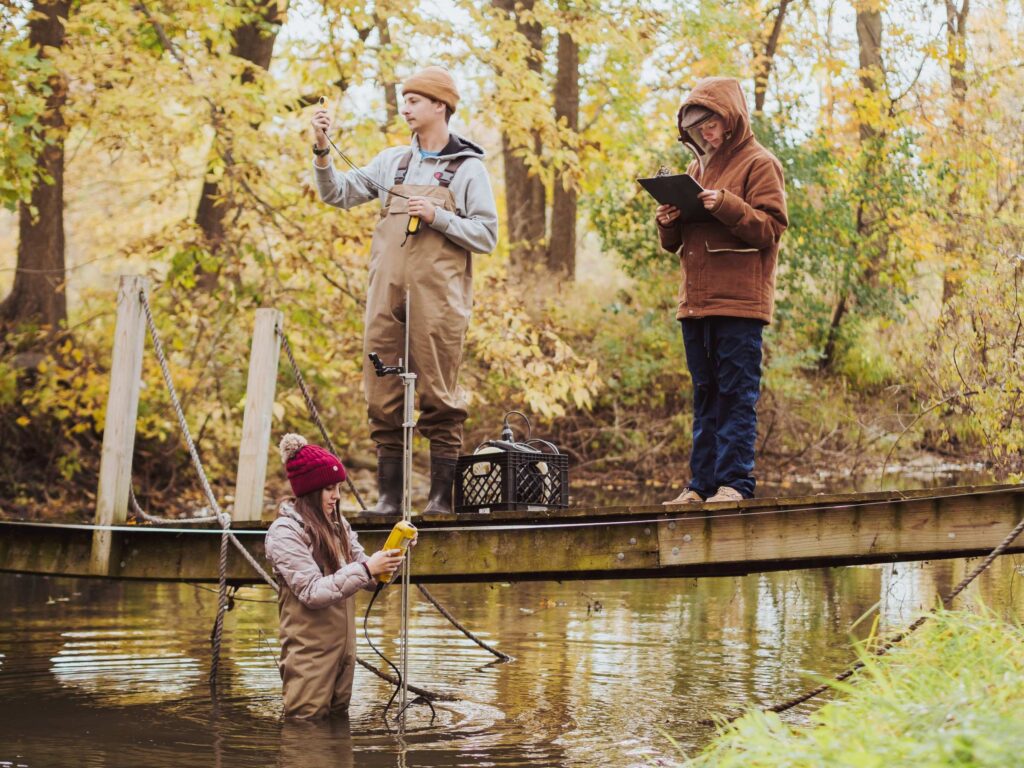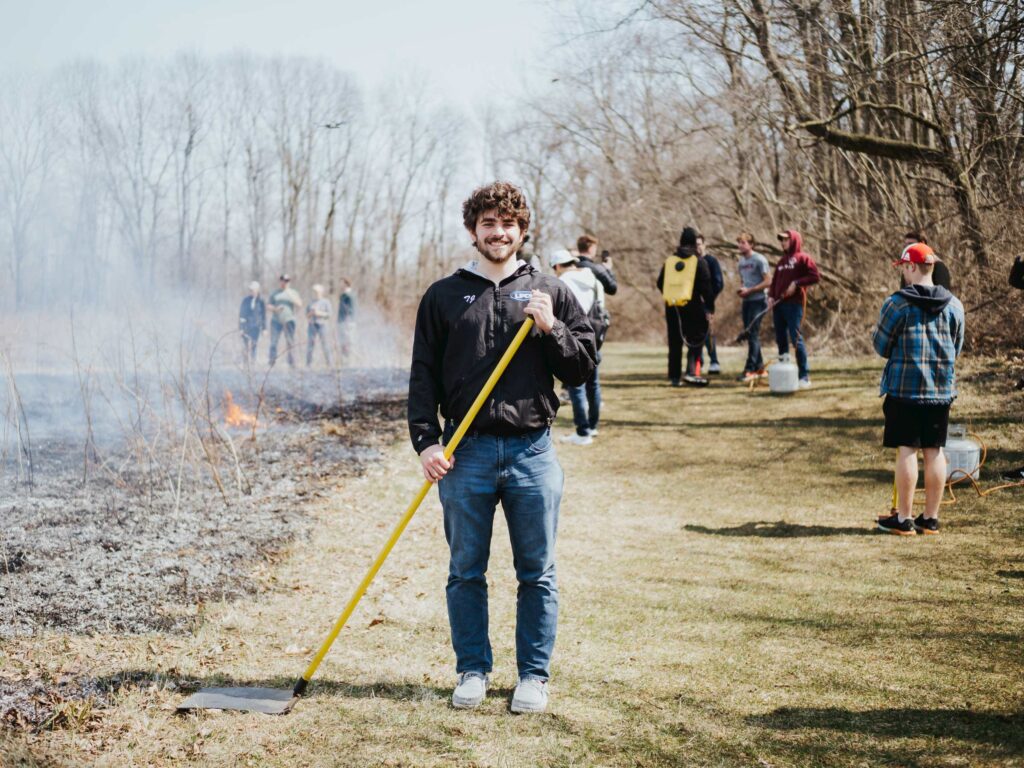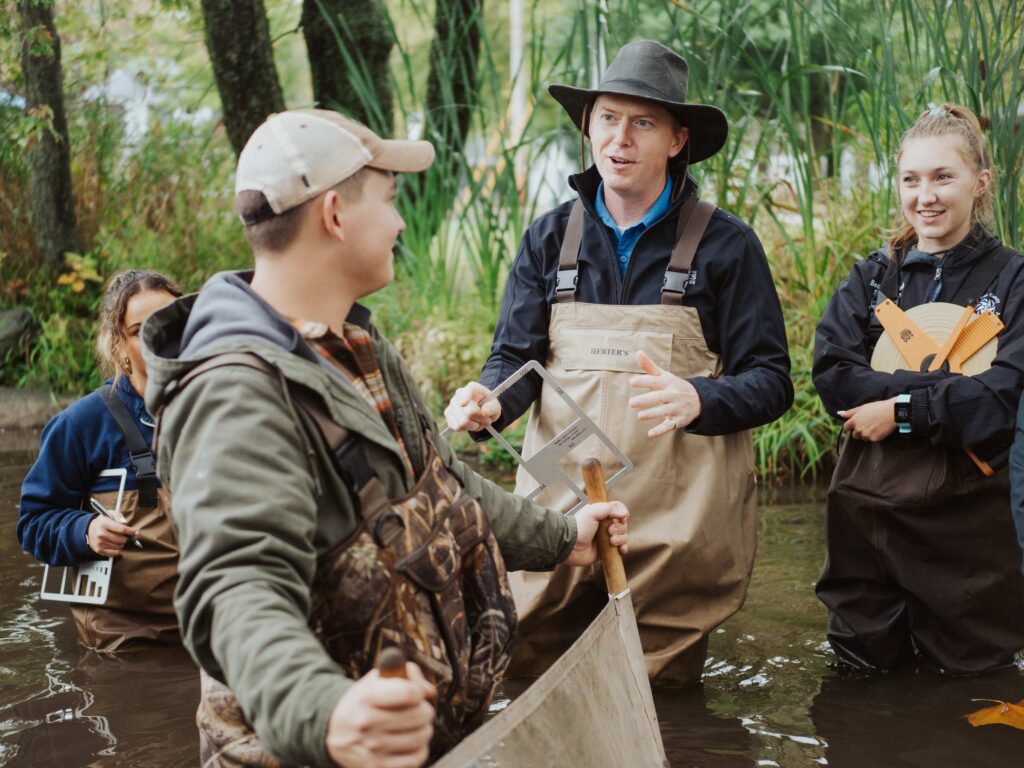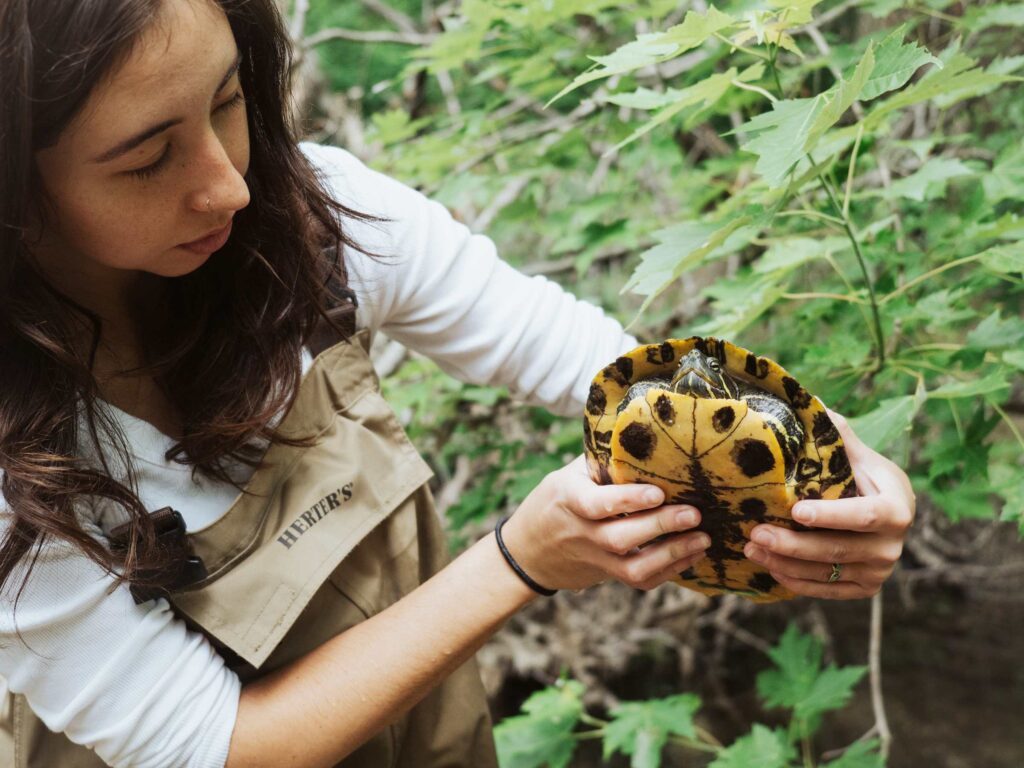2. Our program is uniquely hands-on, feet-wet, and outdoor-based.
Building off of my first point, it’s important to mention that our students are constantly filling up their toolboxes with valuable experience while on campus. I genuinely think we do this better than any of the other top schools for environmental science.
Our students are not just learning about trees –they are outside measuring, identifying, and doing statistical analysis on trees that we have right here on campus. This is possible because Grace has all five major ecosystems of the Midwest right here on campus:
Forest Communities – We have 70 acres of forest land of many varieties right here on campus: upland forest, lowland forest, older forest, and younger forest. This wide variety of forest communities allows us to study and develop skills first-hand.
Prairies – We are restoring three prairie plots on campus. We do prescribed burns and plant native prairie species in order to restore what once was a huge part of the Midwest. These tall grass prairies, towering more than eight feet tall, are amazing communities where elk and bison once lived.
Wetlands – Grace has about 50 acres of wetland on campus. We are home to ephemeral wetlands, which means they dry up at certain times of the year, as well as marshlands and swamps.
Stream – Just down the hill from campus, Cherry Creek flows into Winona Lake. Students are frequently out in the streams, learning about them and developing skills in data collection.
Lake – Our students spend a lot of their studies out in boats on the lake, taking samples from various layers. Sometimes we’re even jumping in the water and swimming around. Other times, we’re grabbing bloodworms in the mud 80 feet below the surface. It’s always a fun time at the lake!

